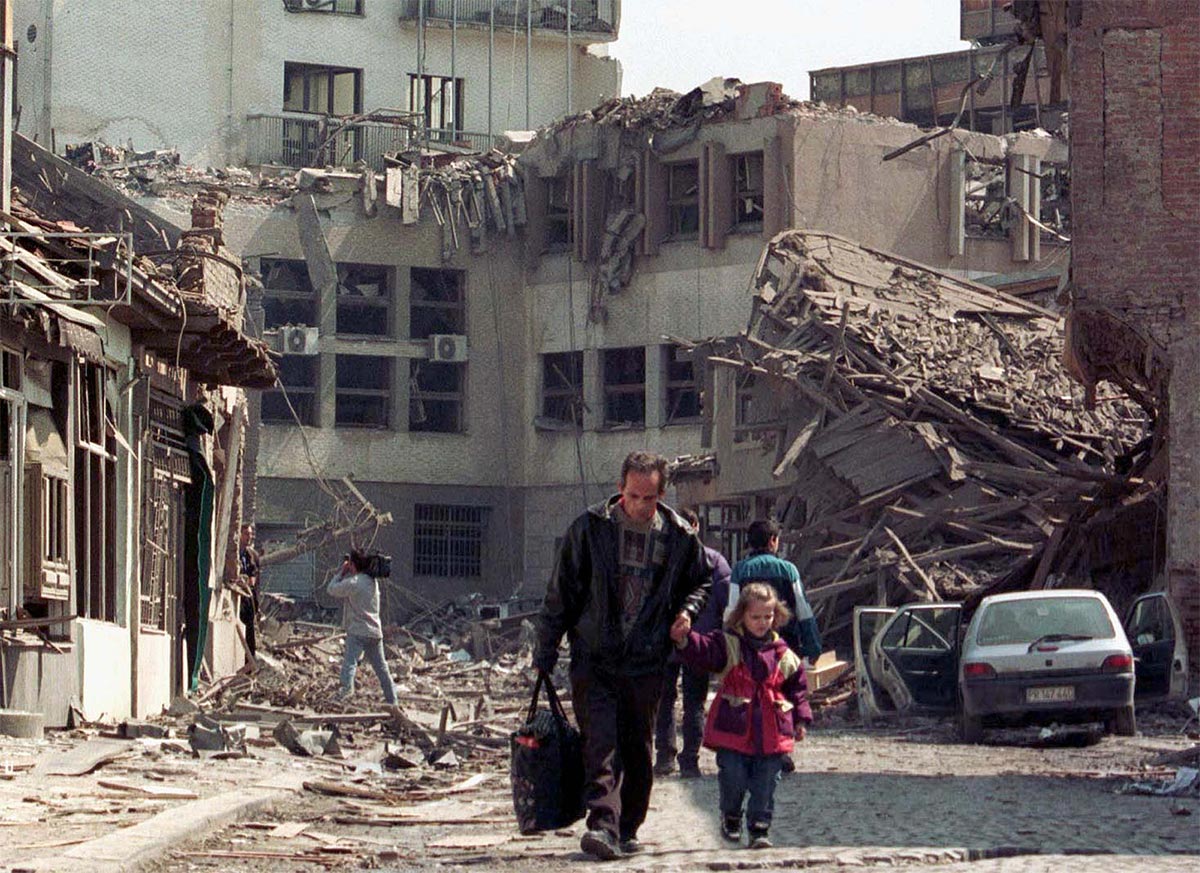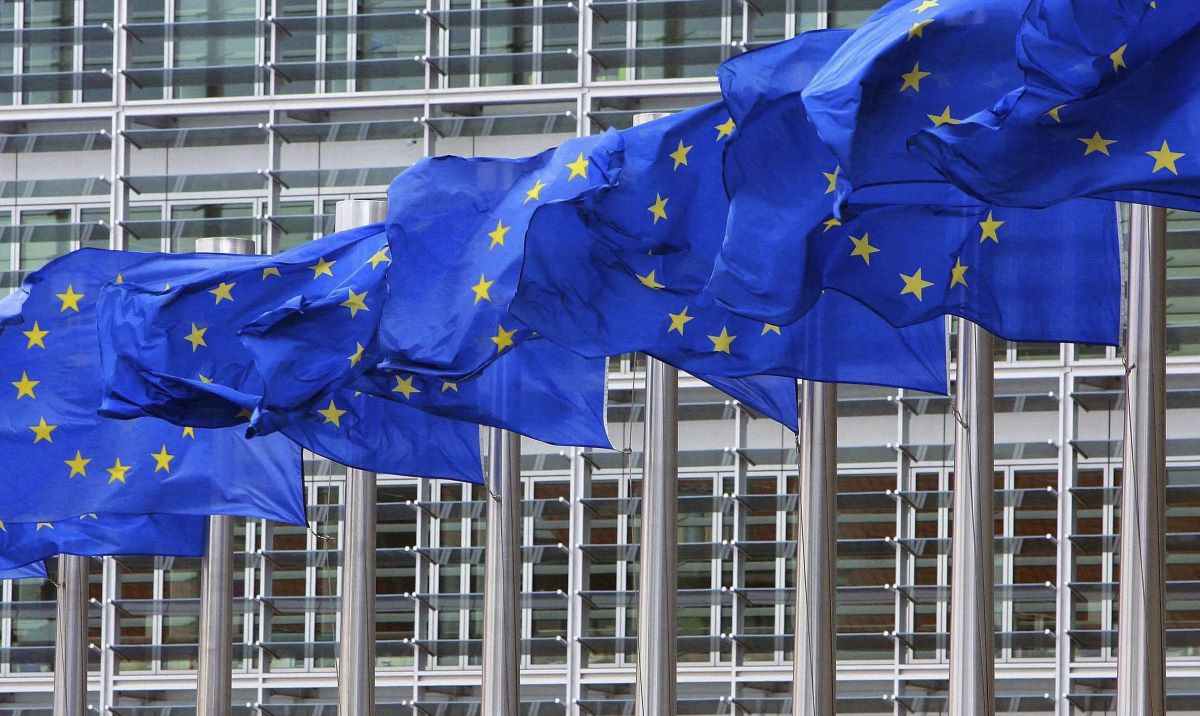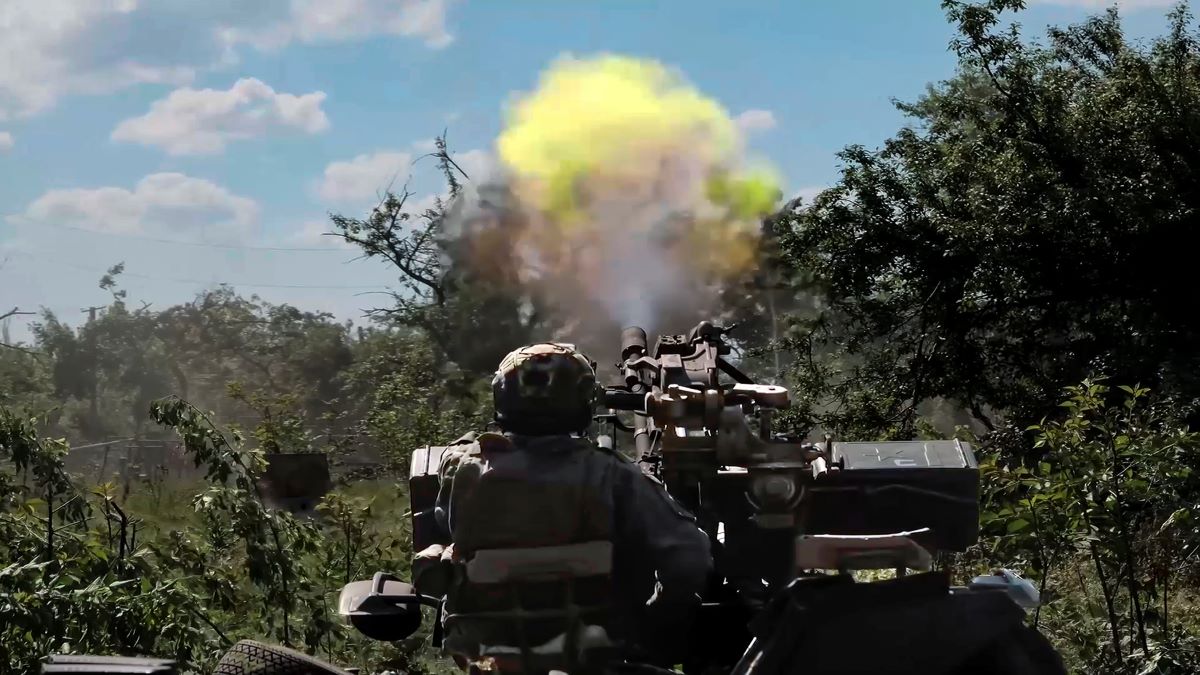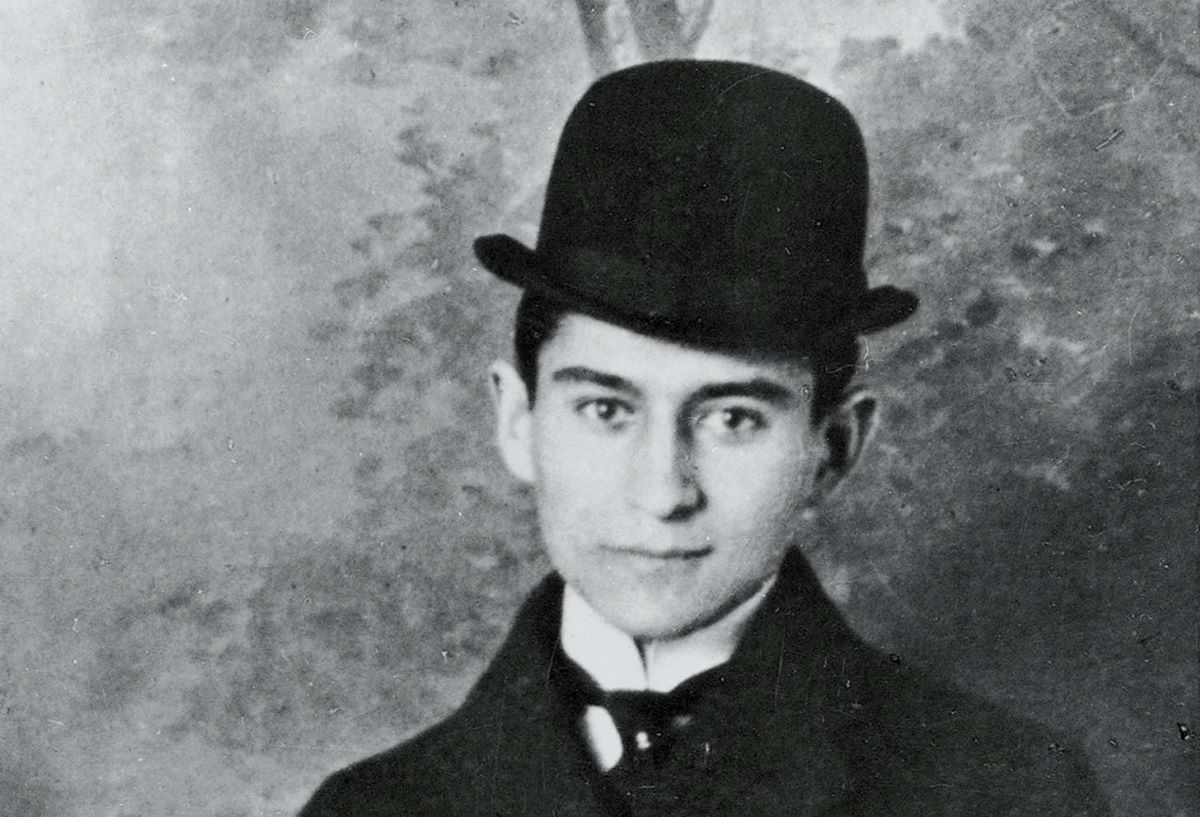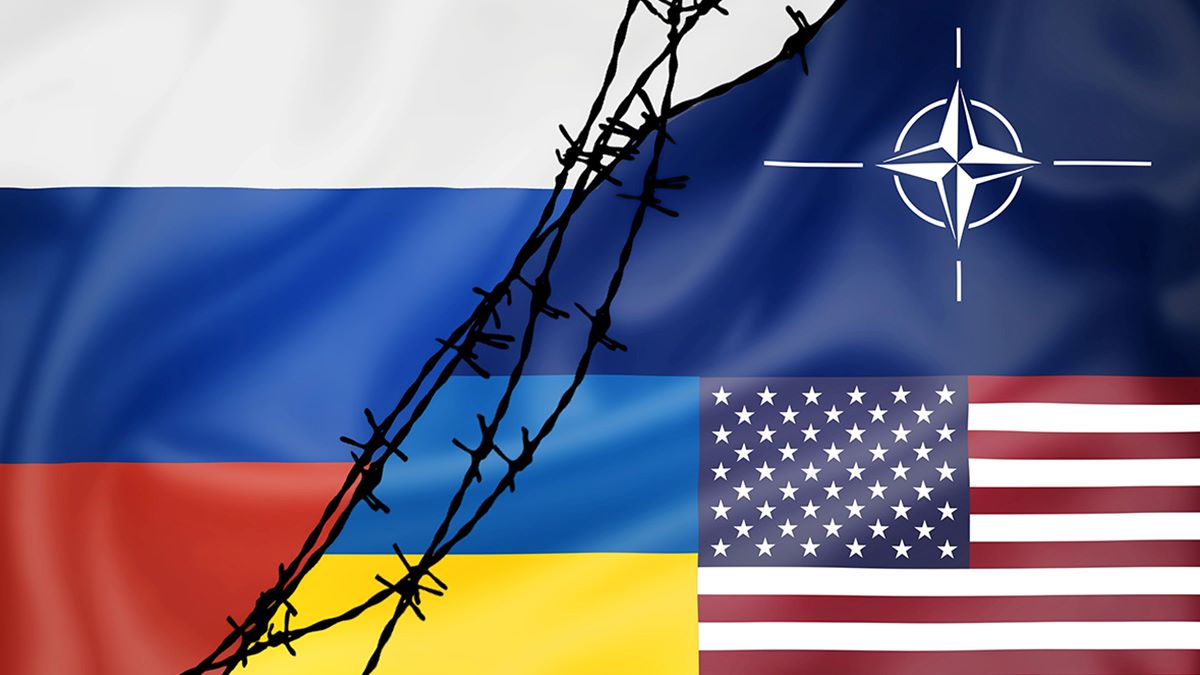Marcello Veneziani reflects on the West’s current military and political posture, contrasting it with historical interventions such as NATO’s operation in Serbia and the ongoing pacifist movements. He critically examines the efficacy and intent behind these stances, questioning their relevance and sincerity against the backdrop of the Euro-Atlantic decline, as described by Eduard Limonov. Limonov portrays the West as a lethargic “nursing home” mired in comfort and complacency, lacking the vitality or will to genuinely defend or promote enduring values, only managing a facade of resistance against external and historical pressures.
* * *
“Russia has taken on the great historical responsibility of bringing war back to European soil,” said Sergio Mattarella at the United Nations in New York. Historically, however, it was the United States that brought war to Europe twenty-five years ago, in the spring of 1999, by intervening in Serbia. And Italy was involved directly for the first time in a war operation close to home: Massimo D’Alema was Prime Minister and Sergio Mattarella (the same name?) was Deputy Prime Minister, in charge of secret services and later Minister of Defense. Nineteen NATO bases on Italian soil were used for two months for attacks against Serbia in an operation called Allied Force, to launch planes, for logistics, and radar coverage: power plants and the Serbian TV headquarters in Belgrade were bombed. The bombings and military operations, in which our country participated with our planes and aircraft carriers, were not authorized by the UN but were justified as a humanitarian intervention. The famous humanitarian bombs of the progressive Democrat Clinton, supported by our progressive and humanitarian government… That was the first European war of our years, on the borders of our home, with direct Italian participation. The previous instance, although far from Europe, had been a few years earlier in Iraq. I don’t recall significant pacifist mobilizations or institutional speeches about the danger of a war on Europe’s doorstep, with direct involvement of European countries. Yet that was a war much closer to the heart of Europe and our borders, compared to Ukraine.
On the other hand, spurred by the massacres in Gaza, an aggressive pacifism is rising in squares, universities, among the opposition. As history teaches us, no pacifism has ever defeated or stopped a war; at most, it disarms at least psychologically one side in the field, one’s own. It is understandable that the Pope repeats in vain his heartfelt call for peace, it is his evangelical mission; less understandable is pacifism as a political line, but only when in opposition (in government, one is always inevitably aligned with the decisions of NATO, the United States, and the European Union).
A realistic response, instead, would be to expand the game of relationships and pressures, detach Europe from subordination to the USA and undertake a bold negotiation plan to transfer conflicts to the negotiating table. But Europe and the United States, both caught by their electoral deadlines, prefer to flex their muscles and show, now with Macron, now with the British, their willingness to defend Europe from Russia with weapons (which has never thought of attacking Europe, but aims to regain control of an area that has been in its orbit for centuries).
Every stance that the West takes is now in the minority on the global stage, both concerning the Russo-Ukrainian war and the Israeli-Palestinian tragedy (except for a semblance of extreme repentance). Does it make sense in this situation and seeing the developments of those two disasters, to insist on the pro-Atlantic and interventionist line?
The reflection at this point shifts from the current to the deeper plane of the Western condition. What is the West today on the global stage? I fear that the most effective summary definition was given a few years ago by Eduard Limonov, a Russian-Ukrainian writer who died four years ago: the great Western nursing home. It’s the title of his book published in Italy by Bietti, with an introduction by Alain de Benoist. According to Limonov, the Euro-Atlantic people “no longer feel life”, they no longer have energy, Europe has long been dead, but its corpse is mummified in the European Union. Living in Western societies means living in a nursing home, managed by public administrators and populated not by citizens but by patients who live under sedatives, tranquillizers, and antidepressants. The nursing home is also represented by the average age, well represented by the worn-out Biden.
The soft totalitarianism of the West for Limonov is covered with moralism, human rights, and the “empire of good” that Christopher Lasch defined as the therapeutic state, between programmed infantilization and prefabricated opinions. The bastions of this Western canon are gender theory, cancel culture, and woke ideology, which are summed up in a widespread syndrome: self-contempt, the shame of being what we are and what we were in history. Going further than Limonov, de Benoist notes that the Western Nursing Home, in the light of this ideology, has become a kind of psychiatric hospital. To a despotic regime, Limonov notes, it is possible to rebel, but it is difficult to revolt against one’s own weaknesses. It’s impossible to agitate inside a nursing home, everything is sedated and brought back to quietness, indeed to quiet non-living, to its long-lived and hospitalized survival. The administration of the nursing home is not the enemy of its patients, but presents itself as their accomplice and protector, and if it limits their freedom and their horizons, it does so only for their good. Interestingly, Limonov notes, freedom is the most inflated fetish word, along with democracy, in Western nursing homes. The aggression, notes the Russian writer, is discharged in the West against nature, which is the second enemy, together with history. Its inhabitants, post-historical and denatured, are “childish as well as effeminate”, the few young people are “old men in the making” who live by typing; pop music serves to brutalize them. The sexual revolution and feminism, rather than elevating women, demean men; pornography is eroticism for the poor. But today, we add, we have entered a phase of de-sexualization of the West, as befits a nursing home, after all.
In this framework, concludes Limonov, the only admitted patriotism is the patriotism of nihilism: not defending civilization, legacies, the world of values, but their absence, peddled for freedom and human rights. Do you think the Western Nursing Home can engage in a war against the vital worlds pressing at its edges, to the east, to the south? Doesn’t this Western figure in military attire, preparing for war and rearmament while being internally disarmed and demotivated, seem wishful thinking?
La Verità – May 10, 2024

